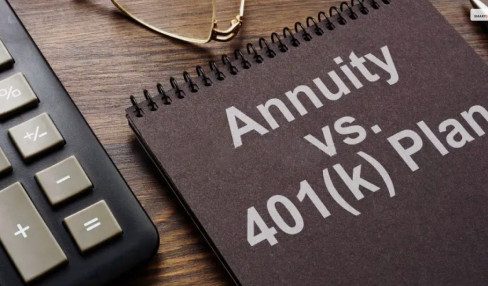Overview Of Accountancy In the UK
4 Mins Read
Published on: 26 November 2020
Last Updated on: 16 September 2024

toc impalement
You have heard of accounting and probably know someone in accounting, but do you really know what an accountant does every day? You might think that your company is not big enough to justify an accountant and that you will not spend much time clarifying accounting issues. The fact is, however, that if you do not behave, you will have difficulty beating the competition in the economy.
If you are a complete newcomer to accounting, qualification by the Association of Accounting Technicians (AAT) is an ideal first step. Once you have completed your qualification in accounting and related areas and have attended accounting courses, you will have all the accounting skills you need but will need to find a way to apply them or already figure out how to do so. [Sources: 3, 5]
What Kind of Educational Qualification do you need to become an Accountant?

The AAT qualification is usually the minimum level expected of an accountant, but you will need to pass the ACCA, ACA, or CIMA qualifications to ultimately become an audited accountant. Regardless of which qualification you choose, qualified accountants are required, so whether you choose ACA, ACAA, or ACA / CIMA you can be sure that you are making a wise choice.
If you are employed in a company and not in a specialized auditing firm, you may also need to be a CIMA accountant. Alternatively, you can apply to a company that has its own accounting system. If you decide to practice accountants in an independent auditing firm, you are more likely to have been an auditor.
There is no legal obligation for accountants to have this qualification, but it ensures that you are qualified as it is recognized by a UK body. Once you have obtained the AAT qualification, you can attend courses designed to train those who wish to become auditors. If you want to become an auditor, you must have an ACCA qualification and at least two years of experience as an accountant in the UK. The qualification gives you a good understanding of the accounting systems and software you use, as well as knowledge of the financial system.
The Journey from Accountant to Auditor: What you need to know

After completing your training, you will become an auditor and can pursue a career in an auditing firm. First of all, there are a number of qualifications you need to acquire to become an accountant in the UK. These include the AAT and ACCA, as well as the qualifications that Aat Accountants typically work with. While many employers support prospective accountants in their training as accountants or if they have already gained relevant professional experience, this can help you on your way to becoming a qualified accountant and is a valuable addition to your CV
Trainee accountants can expect to earn an average salary of around £17,000 in the UK, with an average annual salary of £19,500 for a full-time job.
It is important to note that graduates who want to become future accountants do not work only for the big four audit firms. Any kind of financial practice increases your chances of getting a full-time job in an accounting office. It is very competitive and is usually oversubscribed, so it is not guaranteed that you will get a seat.
International Certifications and Institutes you need to know about

Examples include the US-based American Institute of Certified Public Accountants (IFAC), the Association of Chartered Certified Accountants based in the UK, the International Institute for Certified Certified Accountants (ICAEW) and its US counterpart, the American Association for the Advancement of Accountancy (AIA). In addition to my membership in IFac, I am also a chartered member of the British Institute, a non-profit organization. As a recognized body under the Professional Standards Act 1988, it supports the promotion of accounting as a profession through training and professional development. Accountants often specialize in a specific field, including accounting, tax, financial planning, business administration, accounting, and accounting. For more information on the different types of accounting practices in the UK, see Accounting and Work Areas.
This is an international accounting firm of auditors, which advises students in accounting courses. It monitors the qualification of the widely recognized CGMA (Chartered General Management Accountant), which is required if you have already obtained a postgraduate certificate in business accounting. This is a professional qualification recognized as the leading business diploma in the world. The qualification consists of a two-year course in accounting under the auspices of the British Institute of Accountants and the International Institute for Certified Certified Accounting (IFac), and a six-month course at the University of London’s School of Management (also known as the “ACA”).
Reporting Accounts is a great way to look into the financial position of a prospective employer and to get a feel for their accounting issues ahead of an interview.
After completing this qualification, you can take on middle-level accounting tasks, including accountants, auditors, accountants, and even a number of other positions. There are many different types of accounting courses, but it is common to offer accounting as part of a bachelor’s degree in business or business administration or even as a postgraduate degree. While many universities offer bachelor’s degrees that focus exclusively on accounting, it is also common in the UK to establish an MBA degree that is offered in accounting. One way to understand this system is that you can gain some professional experience in accounting already during your studies, for example as an accountant in a financial services company or a financial company


















Comments Are Closed For This Article